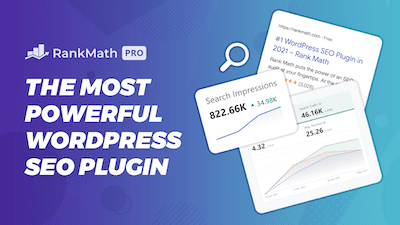Today, I want to talk about how Google has started to chop up your title. Is this a good thing for website owners and SEO? Let’s discuss.
So if you don’t know, Google has been doing this for some time. When you search for something, it doesn’t always use the meta title tag to show the page’s rendered title on the SERP, the search engine results page. It sometimes uses the H1 tag if that is more relevant.
But now, what they’re doing is a little different. What they’re doing is just chopping up your title altogether. So they’re making a new title to better fit what they think the searcher wants to see in the title. And I’ve seen this in practice. I’ve been looking for an answer to a question and clicked on the article’s title, but it was not the answer.
Google just chopped up the title, and I know it did that because I searched for the exact title inside the article, and nowhere was that text written. So they’re claiming this is for user experience and for searchers to get better results. It didn’t help me. It helped me a lot, but I can see this being a positive for people who don’t take us seriously.
Search engine land article
So one of the things I’m actually looking at is this article right here from Search Engine Land called “Google Explains Why It Made the Title Change to the Search Results.” And what they’re saying is that Google went from using a simple title tag 80% of the time to 87% in the past couple of months. So I don’t know if that means they were like, “No, we’re going to do it at 80%.” And then there were a lot of angry comments, and then they were like, “Fine, we’ll do 87% to make you guys happy.”
That means that you’re optimizing your article for no reason. If Google takes 30.1% of the time, it will not show what you want it to show. That’s a problem, especially if you’re paying good money for an agency or SEO to help you out. Hopefully, they picked the right keywords. They know the searcher’s intent. They know what they’re doing with the meta tags, titles, headings, and everything, and then Google does whatever it wants to be based on an algorithm.
The article says only time will tell if Google is using this as a good opportunity for SEOs. This is good news for bloggers and other website owners, but we’ll see.
So they mentioned that they’ve “used text beyond the title elements in cases where our systems determine that the title element might not describe a page as well as it could.” Some pages have empty titles. Some use the same titles on every page, regardless of the page’s actual content. Some said there were no title elements at all.
So that’s a good point. So if someone doesn’t know anything about SEO, web design development, or the Internet, they might write a page and not use any metadata.
On WordPress, if you write a post, the post meta is going to be, by default, the post title. That’s just how the CMS, the content management system, and WordPress work. But if you’re using something else, maybe you wrote your website from scratch, forgot, or didn’t know any better, and have your same website name on every title. That’s not good practice.
And yeah, I guess the searcher might want to see what’s in your content, but I don’t remember you giving it a title. So Google doesn’t know what to do. So I guess it works in some cases.
We need to opt-out
Another thing this article pointed out is that we need a way to opt-out. So if you know what you’re doing or are just a website owner that knows what you’re doing and knows exactly what you want to present to a searcher, there should be a way to get out of this system because you don’t want Google to mess around with something that you already worked hard to optimize, right? Just a thought.
What do you think? I don’t know. Let me know what you think. It’d be great if this is what Google was doing, but it’s not what they’re doing. They need to stop or give us a way to opt-out. They take our brand name, move it around, remove pipes, make dashes, take key terms from several of our good titles, etc.
Is it good that Google’s messing around with title tags and how the page renders on the SERP? Is it a bad thing? I think it’s 50/50. I think fixing a problem that probably very few people are affected by and mandating that solution to everybody is probably not the way to go.
Are you a visual learner? Check out my video below, titled “Why does Google replace your meta titles on the SERP? (Showing Different Page Title),” from my YouTube channel, as I show you all this firsthand.
Frequently asked questions (FAQ)
Do you still have questions? Below are some of the most commonly asked questions about making a WordPress website.
What is a Google SERP page?
A Google SERP page is the page that is displayed by Google when you search for a particular term or phrase. It includes a list of results that Google believes are relevant to your search query and various other elements, such as ads, local listings, and related search terms.
How are results on a Google SERP page ranked?
Google uses a complex algorithm to determine the order in which results are displayed on a SERP page. Factors that may influence the ranking of a result include the relevance of the page to the search query, the quality of the content on the page, the number and quality of external links pointing to the page, and the user’s location and search history.
How can I improve my ranking on a Google SERP page?
Create high-quality, relevant content that is useful to users. And use relevant keywords in your page titles, headings, and content.
Conclusion
Okay, so that concludes this article. What do you think? Let me know in the comments below (I read and reply to every comment). If you found this helpful, check out my full blog and subscribe to my YouTube channel. Thanks for reading!








